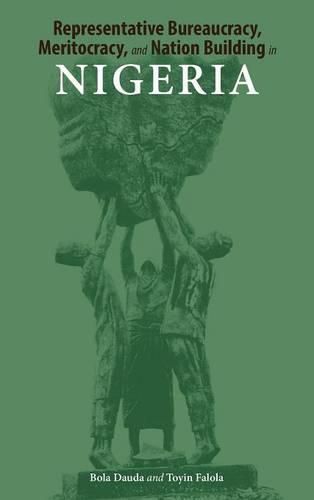Readings Newsletter
Become a Readings Member to make your shopping experience even easier.
Sign in or sign up for free!
You’re not far away from qualifying for FREE standard shipping within Australia
You’ve qualified for FREE standard shipping within Australia
The cart is loading…






This title is printed to order. This book may have been self-published. If so, we cannot guarantee the quality of the content. In the main most books will have gone through the editing process however some may not. We therefore suggest that you be aware of this before ordering this book. If in doubt check either the author or publisher’s details as we are unable to accept any returns unless they are faulty. Please contact us if you have any questions.
This book is a comprehensive theoretical and empirical investigation of the practical application of representative bureaucracy in Nigeria. Part I consists of four chapters, beginning with a theoretical and an historical overview of representative bureaucracy and policy making in Nigeria. This includes a discussion of the myths, contradictions, and the resultant dilemmas of administration. It highlights the complexities and intricacies of public policy-making, and examines the concept of representative bureaucracy including its meaning, forms, criticisms, prospects, limitations, and history. It also examines the need for administrative reforms, what reforms have taken place, and the country’s search for appropriate bureaucracy for nation building. Part II details the objective and empirical facts regarding the representativeness of bureaucracy in Nigeria and its implications. Unlike past approaches, this book provides solid evidence of what difference representative bureaucracy actually makes on the ground. Using a novel and rigorous methodological approach, the actual impact of the civil service on policy-making is assessed and insights are provided into how a more representative bureaucracy affects policy. The approach is enhanced by the authors’ advantage as Nigerian scholars who had both worked in the Nigerian political system as civil servant and university professors. This landmark study will be of value to scholars and students of Nigerian and African political, economic, and social development .
$9.00 standard shipping within Australia
FREE standard shipping within Australia for orders over $100.00
Express & International shipping calculated at checkout
This title is printed to order. This book may have been self-published. If so, we cannot guarantee the quality of the content. In the main most books will have gone through the editing process however some may not. We therefore suggest that you be aware of this before ordering this book. If in doubt check either the author or publisher’s details as we are unable to accept any returns unless they are faulty. Please contact us if you have any questions.
This book is a comprehensive theoretical and empirical investigation of the practical application of representative bureaucracy in Nigeria. Part I consists of four chapters, beginning with a theoretical and an historical overview of representative bureaucracy and policy making in Nigeria. This includes a discussion of the myths, contradictions, and the resultant dilemmas of administration. It highlights the complexities and intricacies of public policy-making, and examines the concept of representative bureaucracy including its meaning, forms, criticisms, prospects, limitations, and history. It also examines the need for administrative reforms, what reforms have taken place, and the country’s search for appropriate bureaucracy for nation building. Part II details the objective and empirical facts regarding the representativeness of bureaucracy in Nigeria and its implications. Unlike past approaches, this book provides solid evidence of what difference representative bureaucracy actually makes on the ground. Using a novel and rigorous methodological approach, the actual impact of the civil service on policy-making is assessed and insights are provided into how a more representative bureaucracy affects policy. The approach is enhanced by the authors’ advantage as Nigerian scholars who had both worked in the Nigerian political system as civil servant and university professors. This landmark study will be of value to scholars and students of Nigerian and African political, economic, and social development .